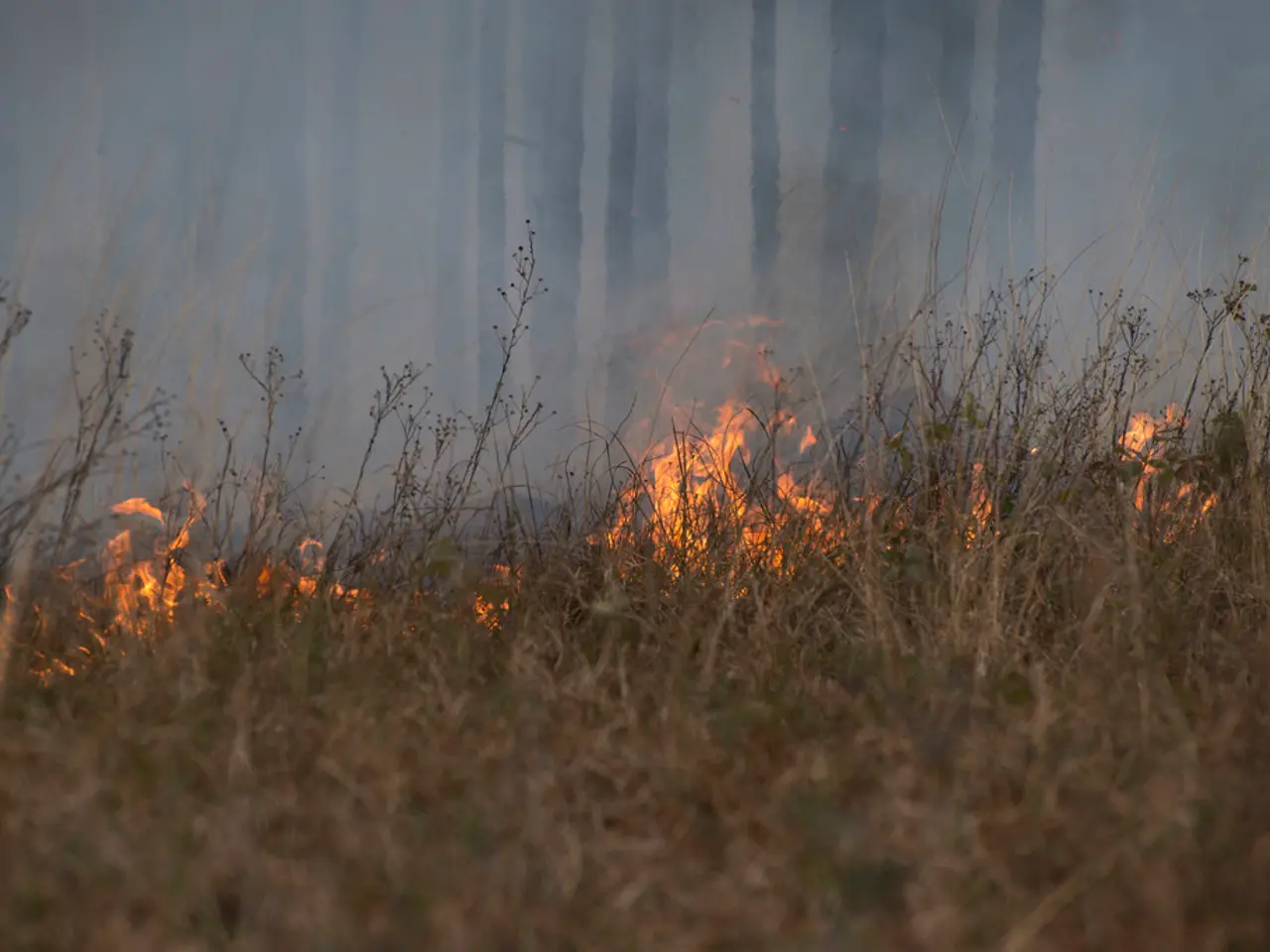Forest Fires Spread Across Eastern Germany
**Large Forest Fires Ravage Europe: Germany, Greece, and Turkey Battle Blazes Amidst Extreme Conditions**
In a series of unfortunate events, large forest fires are currently ravaging parts of Europe, with Germany, Greece, and Turkey being the most affected. The fires are primarily driven by extreme heatwaves, drought, strong winds, and dry conditions, exacerbating fire risks.
In Germany, hundreds of firefighters are battling blazes in forested areas of Thuringia and Saxony. The largest recorded forest fire in Thuringia since 1993, the fire on the Saalfelder Height, remains uncontrolled by evening. A state of disaster has been declared in the affected areas, and emergency services have increased to over 420 personnel. The fire, which started near a former military training ground, has covered around 1,000 hectares, making it larger than the major fire in 2022. The Gohrischheide, located in a region contaminated with munitions, poses additional challenges for firefighters who cannot directly combat the flames due to the risk of munitions detonating.
The habitat of rare animals and plants is also under threat in the Gohrischheide. In addition, fires have spread in southern Thuringia, specifically on the Saalfelder Height near Goesseldorf. Approximately 5,000 tourists and locals were evacuated from the area.
Meanwhile, in Greece, a significant wildfire in eastern Attica prompted evacuations in areas such as Agios Dimitrios and Galazia Akti. Firefighters have made progress containing the blazes, with the deployment of helicopters and aircraft supporting ground crews.
Turkey has been hit particularly hard, with over 600 fires battled recently. Large wildfires, now under control in western Izmir province, persist near the southern coastal area of Dortyol close to the Syrian border. The fires have destroyed or damaged around 200 homes and forced tens of thousands of evacuations. Tragically, there have been fatalities, including an 81-year-old man and a 39-year-old forestry worker due to fire-related incidents.
To combat these blazes, thousands of firefighters, supported by helicopters, aircraft, and ground crews, are actively engaged across all three countries. Emergency services use mobile alert apps to warn residents and coordinate evacuations. International support and resource sharing have been implemented, with Turkey sending firefighting equipment and aircraft to assist neighboring Syria.
Authorities remain on high alert, preparing for potential re-ignition, especially in Germany. Despite some stabilization, the situation in Brandenburg is still considered cautious due to the potential for flare-ups.
In summary, the large forest fires in Germany, Greece, and Turkey are a direct consequence of extreme climatic conditions amplified by climate change. Firefighters and emergency services are actively battling the blazes using a mix of aerial and ground resources, issuing evacuations to protect residents while authorities remain on high alert to prevent further spread.
Other environmental-science studies suggest that the ongoing climate-change issues may exacerbate weather patterns, leading to more frequent and intense forest fires similar to the ones currently ravaging Germany, Greece, and Turkey. It's crucial that we continue to invest in and prioritize research for mitigating the impacts of these fires and adapting to the changing climate to minimize future damage.






